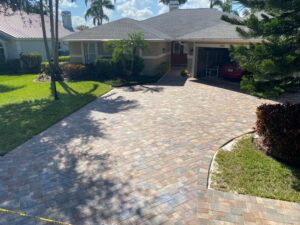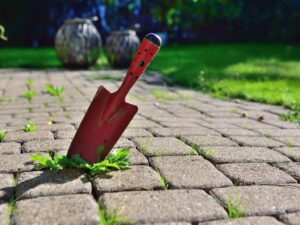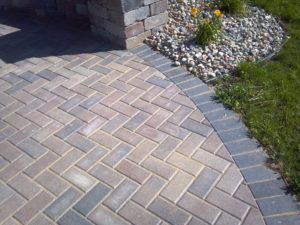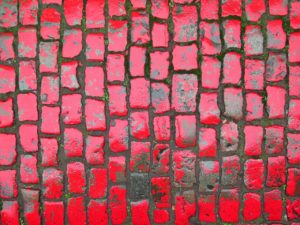Hardscape installations require a lot of planning, tools, and expertise. When conceiving your next project, it’s never a good idea to get down to business without consulting some professional help – especially if it’s your first time around. Out of the many things involved in a successful installation, the paver base is probably the most important step, and whether or not laying pavers without sand is possible is a common question among homeowners who wish to cut costs.
In this article, we’ll discuss the matter of laying pavers without a traditional base. In case you’re looking for a straightforward, DIY guide to paver installation, click here.
So, is laying pavers without sand doable?
Technically, yes – but no hardscape professional will recommend you do so.
As a staple in the industry, an ideal paver base is created with two different levels of bedding: gravel, which goes at the very bottom to hold the structure together, and polymeric sand, which is essential to keep the paving stones in place.
If you choose to skip (or simply overlook) these basic techniques, your project can be seriously compromised – and you’ll have to deal with heavy maintenance often. That means, of course, spending more money on something that shouldn’t have presented a problem in the first place.
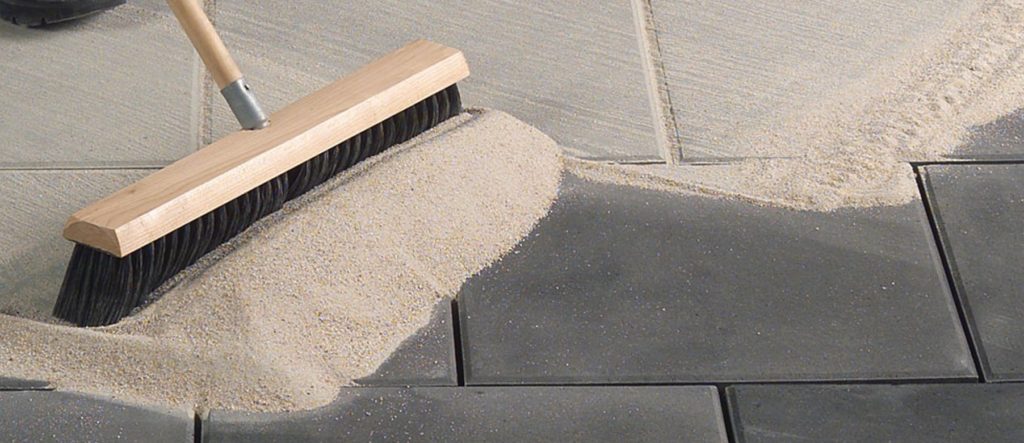
Say, for instance, that you want to use dirt for this job. Even though that’s a resource we can find in most people’s backyards, the properties of dirt don’t really stand up to sand, which is a more manageable material in every way you look at it.
If you’re familiar with paver installation, you’ll know that we have to firmly compact the soil before laying the stones – in other words, it must be flat. Not only does dirt shrink when compacted, but you’ll also have a difficult time screeding it, which is impossible to do without special tools and machinery.
At the end of the day, it all gets down to cost-benefits.
What paver base can I use instead?
If you don’t want to use sand whatsoever, there are very few alternatives available out there. Before we go any further, though, let’s look at some problems that a poor paver base installation might cause in the future:
- dips and voids in the floor, due to settling or wobbling;
- faulty drainage, which means recurrent water ponds and mud;
- growing of weeds, mold, and moss between the paver joints;
- uneven or unleveled pavers, also known as sinkage;
- in the case of dried clay soil, pavers become glued permanently;
- cracked and chipped units, which rub against each other because of traffic and movement.
As you can see, laying pavers without sand is possible, but it’s not worth it. Considering you’re aiming for long-term results, applying the traditional way is your best bet. Read the full article on installation with polymeric sand here.
Now, what other paver bases are available on the market?
Crushed stone
A crushed stone base is very common for patio pavers because they’re used regularly. Public spaces, in particular, benefit a lot from this material, since it is easy to come across and can hold its weight. Just make sure to get the right product – you know, the one made specifically for pavers.
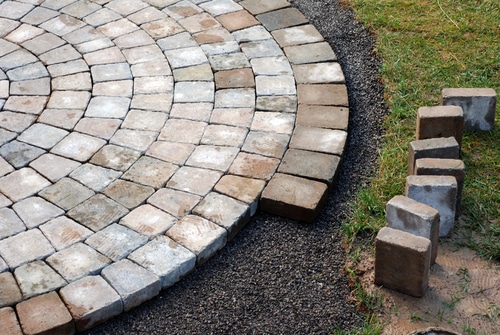
Compacted soil
We said in the beginning that dirt is not a good option for a base – and we still stand by that opinion. However, compacted soil (as long as it’s done properly) can last for a season or so, which might be useful if your project is not meant to be permanent.
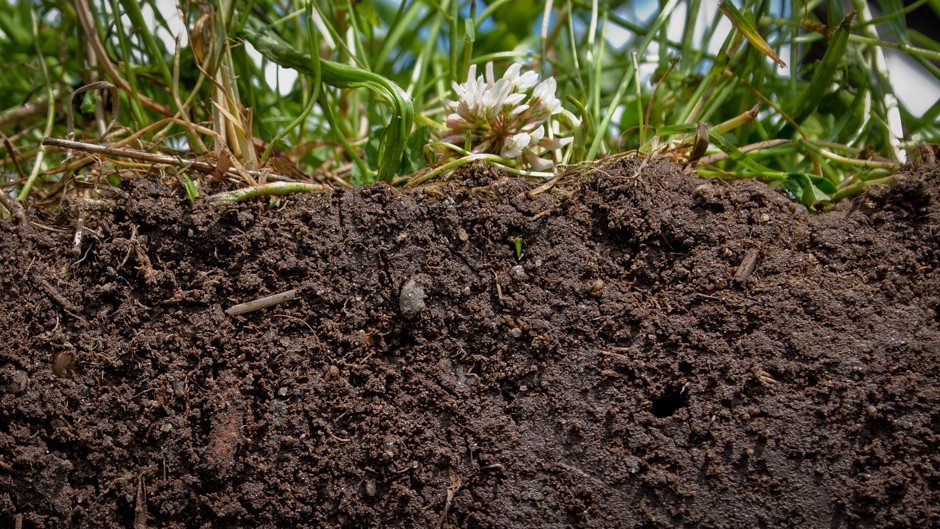
Stone dust
This one is never a good idea, no matter how you look at it. The main problem with stone dust lies in its texture, which can’t be compacted properly, leading to shifting and sunken pavers in the long run.
Mortar
Mortar is a bonding agent produced by mixing cement (or any other binding material, such as lime) and fine aggregate (sand) with water. As you’ll see in the next section, many professionals add mortar to special installations – usually, the ones that don’t need to be created from the ground up.
Laying pavers over concrete
Finally, here’s a great tip for you: installing brand-new pavers over an existing concrete floor is also a safe bet if it ever comes to it. In this scenario, mortar is the ideal material to prepare the base instead of sand – because we’ll simplify the project and reduce costs.
However, this is true only if the concrete is looking well. If the concrete surface is broken, very uneven, or in terrible conditions, the best option is to rip it all off and start over with a traditional paver base.
With that said, follow the next steps to install pavers over concrete using a mortar set application:
- Step 1: Clean the concrete surface of all dirt, oil, and debris with a pressure washer and let it dry.
- Step 2: Place ½ inch of latex-modified mortar underneath each paver, adhering it to the concrete. To ensure that the mortar stays wet for the application, you can work in small areas little by little.
- Step 3: Place the same latex-modified mortar into the joints around each paver.
- Step 4: After the mortar dries, use a brush or striking tool to remove the mortar in excess.
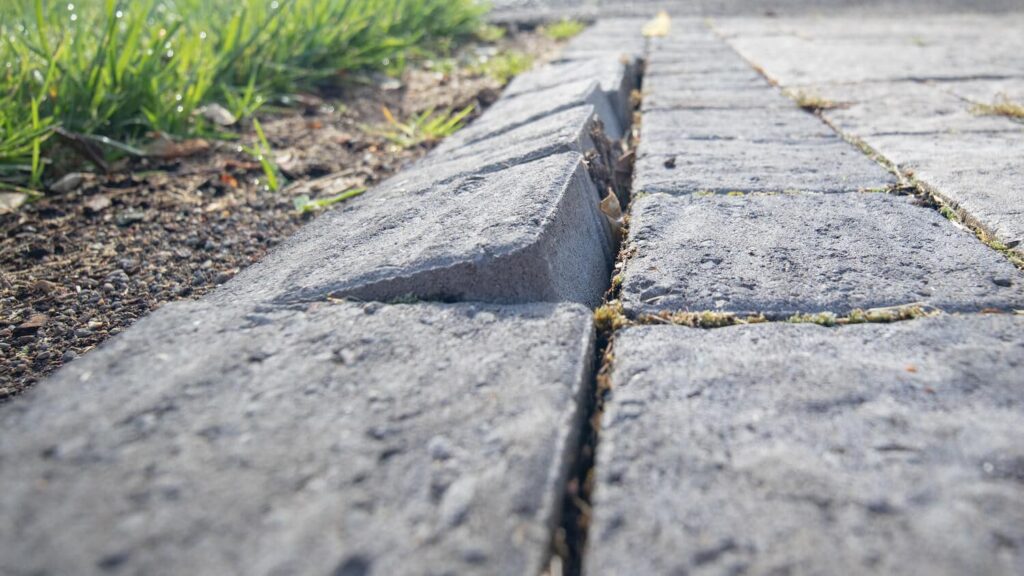
S&S Pavers can attend to your hardscape needs
So – hopefully, now you know the importance of base sand in a paver installation and how dangerous it is to overlook it.
Here at S&S Pavers, over our 12 years of experience, we have seen many installations ruined by poor management of resources and so on.
That’s why we always recommend hiring experts nearby to guide you through the whole process without fuss. You see, pavers are an investment that can add tremendous value to your house, so you want to make sure you’re left with the best possible job.
In fact, if you happen to be around our area of activity – the Sarasota and Manatee counties, in Florida – why not give us a call to help you?
You can contact us any time for a free estimate of our services. Call us right now at 941-773-3098 or email us at sales@sspavers.com. We would be happy to hear from you.

